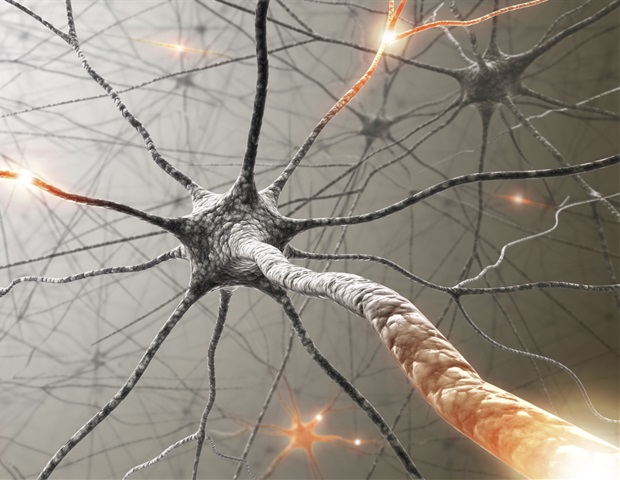Smile Secrets: How Dental Health Could Be the Hidden Trigger Behind Women's Chronic Pain
Health
2025-04-09 13:06:00Content

A groundbreaking study from the University of Sydney has uncovered a compelling link between oral health and women's overall physical well-being. Researchers have discovered that poor dental hygiene may be more than just a dental issue, potentially contributing to widespread pain experiences.
The study reveals a significant correlation between suboptimal oral health and increased occurrences of migraines, abdominal discomfort, and generalized body pain among women. This research sheds new light on the intricate connections between oral health and systemic pain, suggesting that maintaining good dental hygiene could be a crucial factor in managing chronic pain conditions.
By highlighting these unexpected connections, the study emphasizes the importance of comprehensive healthcare that considers the interconnected nature of our body's systems. Women, in particular, may benefit from paying closer attention to their oral health as a potential strategy for reducing pain and improving overall quality of life.
Unraveling the Hidden Connection: Oral Health's Surprising Impact on Women's Pain Perception
In the intricate landscape of human health, emerging research continues to unveil unexpected connections between seemingly unrelated bodily systems. A groundbreaking study from the University of Sydney has recently shed light on a fascinating correlation that challenges our traditional understanding of pain and oral wellness, presenting a compelling narrative that demands closer examination.Decoding the Complex Interplay Between Dental Wellness and Systemic Discomfort
The Intricate Mechanisms of Oral-Systemic Health Interactions
Modern medical research increasingly recognizes the profound interconnectedness of our bodily systems. The mouth is no longer viewed as an isolated region but as a critical gateway that potentially influences overall physiological functioning. Inflammatory processes originating in oral cavities can trigger cascading responses throughout the body, creating complex neurological and immunological pathways that manifest as diverse symptomatic experiences. Researchers have discovered that chronic dental inflammation can activate sophisticated neurological signaling mechanisms, potentially amplifying pain perception in multiple bodily regions. The intricate network of nerve connections and inflammatory markers creates a nuanced communication system that extends far beyond traditional medical understanding.Women's Unique Physiological Vulnerability
Female physiology presents a particularly complex landscape for understanding pain mechanisms. Hormonal fluctuations, neurological sensitivity, and immunological responses interact in ways that make women more susceptible to systemic inflammatory processes. The University of Sydney's research illuminates how oral health disruptions can disproportionately impact women's pain experiences. Neurobiological studies suggest that women's pain perception circuits are more sensitively calibrated, potentially explaining why dental health disturbances might trigger more pronounced systemic responses. Hormonal variations, menstrual cycles, and reproductive health factors contribute to this intricate biological interplay.Neurological Pathways and Pain Signal Transmission
The human nervous system operates through an extraordinarily complex communication network. Inflammatory markers originating in oral tissues can potentially activate neuropathic pathways, creating amplified pain signals that manifest as migraines, abdominal discomfort, and generalized bodily pain. Neuroimaging techniques have revealed fascinating insights into how inflammatory processes can create neurological "highways" that transmit pain signals across seemingly unrelated bodily regions. These discoveries challenge traditional medical paradigms and offer groundbreaking perspectives on holistic health understanding.Clinical Implications and Future Research Directions
The University of Sydney's findings represent more than a mere academic observation; they provide a transformative framework for understanding women's health. Dental practitioners and healthcare professionals must now consider oral wellness as a critical component of comprehensive pain management strategies. Future research directions will likely focus on developing integrative treatment protocols that simultaneously address oral health and systemic pain management. Interdisciplinary collaboration between dentistry, neurology, and immunology will be crucial in unraveling these complex physiological interactions.Preventative Strategies and Holistic Wellness Approaches
Proactive oral health maintenance emerges as a critical strategy for women seeking to mitigate potential systemic pain experiences. Regular dental check-ups, comprehensive oral hygiene practices, and understanding individual inflammatory risk factors become paramount in developing personalized wellness strategies. Nutritional interventions, stress management techniques, and targeted anti-inflammatory approaches can potentially modulate the intricate biological mechanisms underlying these pain experiences. Empowering women with knowledge about these complex physiological interactions represents a significant advancement in personalized healthcare.RELATED NEWS
Health

Healing the Wounds: Columbus Stands Firm on Gun Violence as a Public Health Emergency
2025-03-18 23:00:00
Health

Rock Legend Roger Daltrey Reveals Personal Health Struggle During Electrifying Concert Performance
2025-03-30 10:22:12
Health

Scrolling into Darkness: How Social Media Warps Self-Worth and Mental Well-Being
2025-03-03 15:00:00





